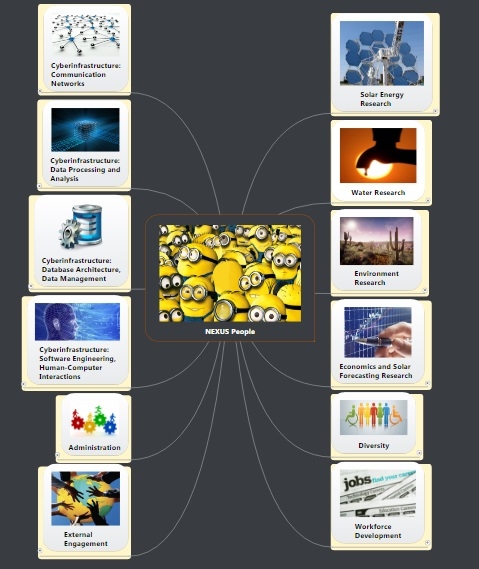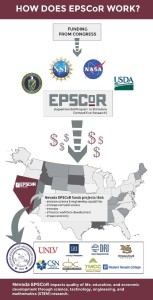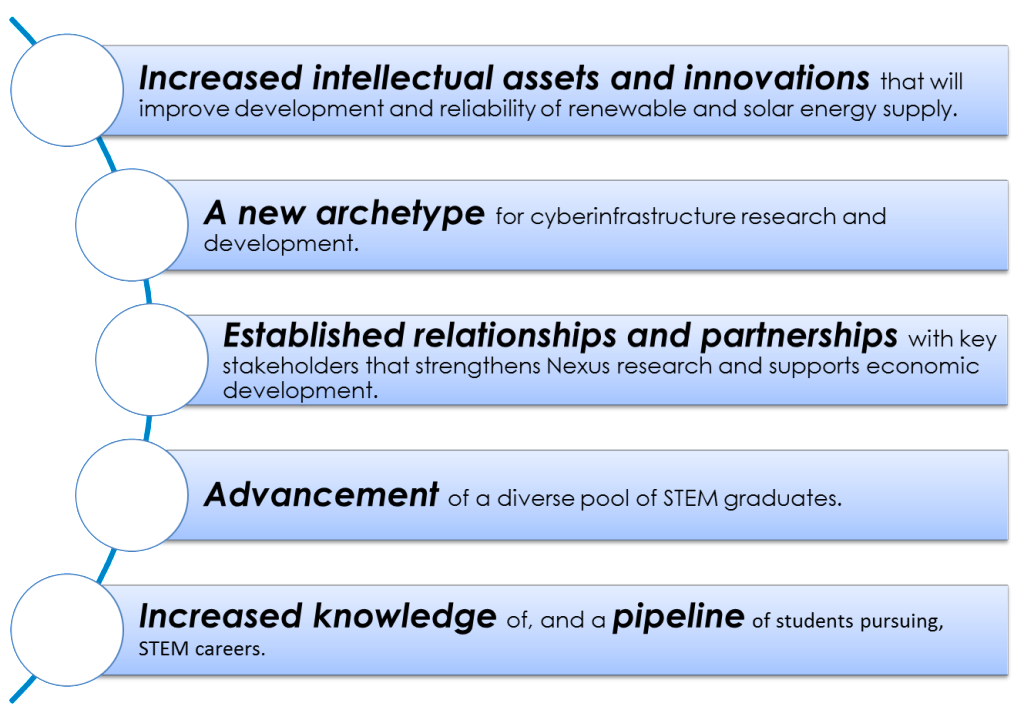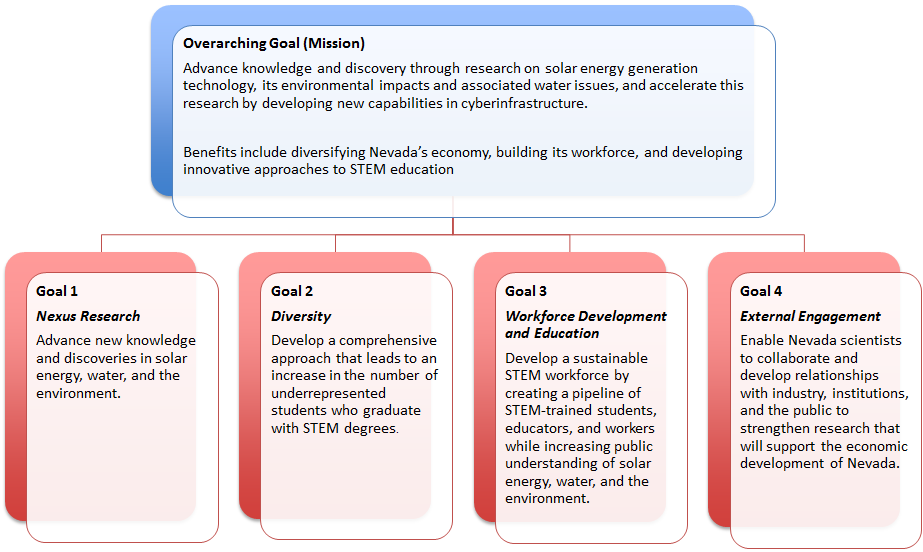ABOUT
ABOUT SOLAR ENERGY WATER ENVIRONMENT NEXUS IN NEVADA
Nevada scientists are developing new technology that could greatly increase the amount of solar energy systems installed without increasing the water required or rendering major impacts on the environment.
Installing solar power systems in Southern Nevada isn’t new. After all, Nevada has the second highest solar radiance in the world, second only to Egypt. Existing industrial solar panel models require water resources to keep them producing solar power at the rate at which they were intended – not good for a region where drought is the norm. Existing solar panels also might have a potentially adverse effect on their surrounding environments.
It’s for these reasons that the Nevada Solar-Energy-Water-Environment Nexus Project was conceived and then funded.
Linkages – among solar power, water, and the environment
- In Nevada, solar flux is abundant and exploration of this energy source has the potential to significantly diversify the economy of the state.
- Nevada lies within the Great Basin and Mojave Desert, both are fragile ecosystems easily altered by anthropogenic activities.
- The generation of all forms of energy, except wind, requires water. Yet, Nevada is an arid region with limited water resources.
Started June 1, 2013, the Solar Nexus Project (for short) is a multifaceted five-year research project focusing on the nexus (or linkage between) solar energy generation and Nevada’s limited water resources and fragile environment. The focus of the Solar Nexus Project is creating a center of research excellence on solar energy conversion to electricity, minimizing its negative impacts on water usage and the environment. In essence, seeking to create a paradigm shift in how solar plants are built and utilized, helping Nevada establish itself as a competitive state in the field of solar nexus research.
- The National Science Foundation under its EPSCoR* Program
- EPSCoR is a program to stimulate research capacity and competitiveness in states which receive comparatively less federal funding.
- It is a cooperative agreement – Therefore funding is awarded yearly depending upon performance of previous year. Funding is $4 M/Year.
*Established Program to Stimulate Competitive Research
The Nevada System of Higher Education was awarded 20 million in federal dollars plus $4 million in state dollars over the course of five years from the National Science Foundation (NSF) Established Program to Stimulate Competitive Research (EPSCoR)1 program and is distributing funds to Nevada’s three major institutions of higher education: the Desert Research Institute, the University of Nevada Las Vegas, and the University of Nevada Reno. The project is a high-tech, highly inter-disciplinary venture that brings together a diverse team of engineers, educators, researchers, computer scientists and students, including 48 faculty, 14 technicians and over 30 PhD-level and Masters-level students working at DRI, UNLV, and UNR. Each institution is working in a team environment to optimize environmental science, workforce development, and external engagement. Out of nine states that applied for this grant, Nevada is one of four to be awarded the funds.
1EPSCoR is a program designed to fulfill NSF’s mandate to promote scientific progress nationwide. Twenty-eight states, the Commonwealth of Puerto Rico, the U.S. Virgin Islands and Guam are currently eligible to participate in elements of the program. Through this program, NSF establishes regional partnerships with government, higher education and industry that effect lasting improvements in a state’s or territory’s research infrastructure and research and development capacity, and hence, its academic competitiveness.
- To advance knowledge and discovery through research on solar energy generation, its environmental impacts, and associated water issues and,
- To accelerate this research with new cyberinfrastructure capabilities.
- Cyberinfrastructure Development
- Evaluation and Assessment
- Sustainability
- To promote economic diversification in Nevada by supporting solar energy development.
- It is critical to understand and minimize the impacts of solar energy development on Nevada’s limited water resources and the environment while achieving environmental benefits from renewable energy.
- Nevada needs cyberinfrastructure and an educated and diverse workforce to sustain the renewable energy industry.











